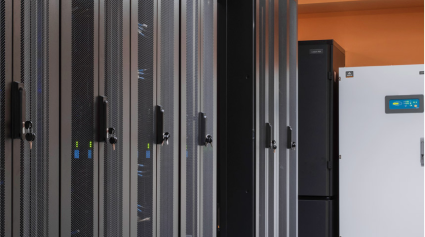Few industries have grown in importance as quickly as Cloud and Colocation—both within the data center market and to society as a whole.
In our report ranking the World’s Most Critical Industries, Cloud and Colocation ranked fifth, behind well-established industries Utilities, Mass Transit, Telecommunications and Oil and Gas Production. If we performed the same analysis two years from now, Cloud and Colocation may very well rank even higher.
To a person outside the data center market, the criticality of the industries that rank ahead of Cloud and Colocation seems obvious. Downtime within the Utility industry, for example, can literally paralyze society and endanger human health, as we have seen in Puerto Rico following Hurricane Maria.
Similarly, Mass Transit (air and rail), Telecommunications, and Oil and Gas production have become established over a long period of time as industries integral to our economy and way of life. Disruptions in these foundational industries create a ripple effect that can spread across society and create serious consequences.
Can the same be true of Cloud and Colocation after just a few years?
To a large degree, the answer to that question is yes. With head-spinning speed, the last several years have seen Cloud and Colocation emerge as the backbone of the digital economy. Consider these data points:
- According to monitoring data from cloud security company Okta, companies today use on average 16 cloud applications to support their business.
- Gartner projected growth in cloud service for 2017 at 18 percent, with the highest growth coming from cloud system infrastructure services (36.8 percent) and cloud application services (20.1 percent). This follows the explosive growth in Cloud and Colocation services that has occurred in the previous three years.
- In addition to its importance supporting established business applications and processes, Cloud and Colocation will play a significant role in emerging transformative trends, such as Smart Cities and the Internet of Things.
Of course, the “cloud” is, in reality, just a physical data center or network of data centers with a specific purpose. It’s that purpose that sets Cloud and Colocation above other data center-dependent industries in our ranking.
Financial Services and E-commerce, for example, scored highly on several criteria used in the ranking, but neither had an overall score high enough to crack our list of the eight Most Critical Industries. Downtime in these critical industries wasn’t seen as potentially far-reaching as disruptions in Cloud and Colocation services. It’s the interdependence between Cloud and Colocation services and the businesses and individuals they support, that increases the potential consequences of a disruption. You can read more about how industries were evaluated in the full report or this blog post.
And, it isn’t just the criticality of Cloud and Colocation data centers that is growing—their influence on the data center market is increasing as well.
Most importantly, they have provided data center operators with a new option that allows them to expand capacity or add applications quickly. Thanks to the ability to “outsource” data center capacity to a Cloud or Colocation provider, many businesses now have the agility to better adapt to changes in business processes, markets and technology. This has created a fundamental shift in the economics of how data center capacity is managed.
Cloud and Colocation providers have also made their mark on data center technology and architectures. With a business model that demands capital efficiency to remain competitive and high availability to ensure loyalty, Cloud and Colocation providers have been instrumental in advancing technologies that can meet SLAs at the lowest possible cost.
They were among the early adopters of reserve power architectures that achieve availability levels similar to 2N architectures with less capital investment, higher utilization rates and greater scalability. They’ve also helped advance the adoption of economization systems that use outside air to optimize the efficiency of heat removal and DCIM systems that provide visibility into asset location and utilization.
As we continue to move down the path of digitization, Cloud and Colocation services will grow in importance and become even more critical than they are today. It isn’t hard to imagine these services becoming as important in many areas as the other “utilities” we depend on every day. They will also continue to invest in infrastructure systems that not only deliver the highest levels of availability but also the operating efficiency required for profitability. As they do, they will push the envelope of data center efficiency and that will benefit the entire market.








